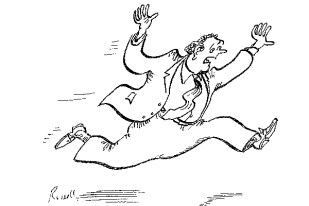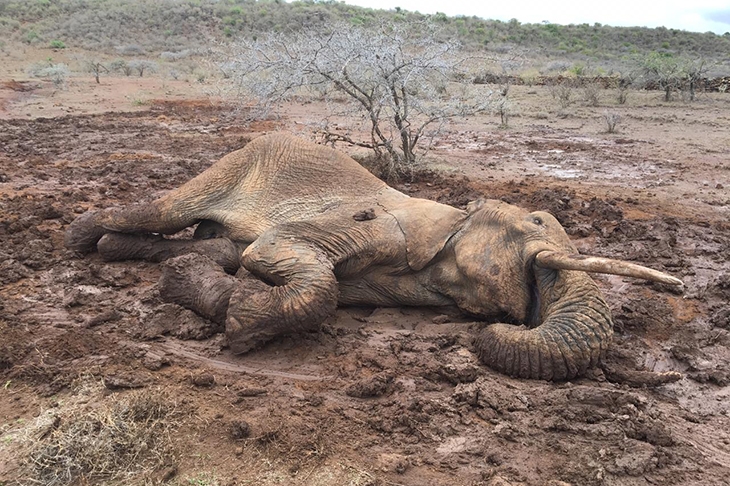Laikipia, Kenya
‘An elephant has fallen over,’ said the man running up to me. My first thought was that poachers had killed the animal for its tusks. ‘Has it been shot?’ The man shrugged. ‘He was eating leaves, then he just fell over.’ As Claire and I made our way to the place, I was worried. Around our home, where we see elephants almost daily, I have come to learn that our destinies are closely interwoven. Meet a calm elephant who goes on browsing while gently billowing his ears because his herds are not being hunted and we know our valley is at peace. A skittish elephant is a harbinger of danger, a sign that poachers or armed raiders are about. The time I found a carcass with its tusks hacked out — faceless, bloated, its grey hide streaked with white vulture droppings — is etched in my memory as the start of a season of raids and attacks. Elephants are also like a barometer of human survival in our area, because they require huge rangelands of forests and pasture. I know this does not apply to most of Africa, but around us happy elephants mean healthy landscapes. As the charcoal burners destroy the wilderness, as the bush is cleared to make way for shacks and farms that swiftly become dusty wastelands, the rains disappear with the topsoil and the elephants die out but they do not go quietly. In the shadow of Mount Kenya’s melting glaciers, I have seen an elephant-flattened man, bashed repeatedly into the ground. What was most striking about the scene was the evident vengeful anger of the attack — as if that animal had done it as a warning to the rest of us. We found the elephant lying on his side in a pool of mud and surprisingly, he was still alive. Right away I recognised him as one of the old bulls who have roamed our valley for decades, usually moving around with his club of old gentlemen bulls. He was prone but still immensely powerful, churning his legs and flapping his ears and trunk. It was clear he could not get to his feet at all. I got very close, trying to find signs of a bullet wound, a snare wire or a spear. I began to think he must have broken a leg. His tusks were only about 30 or 40lb but he seemed very elderly and starved. It had not rained properly on the farm for nine months and there was no food. In the spot where he fell, he had been peeling off the yellow bark of the fever trees, a bitter chewy food that must have had little goodness in it. On the morning he fell, it had rained for the first time and the whole area was slippery mud.







Comments